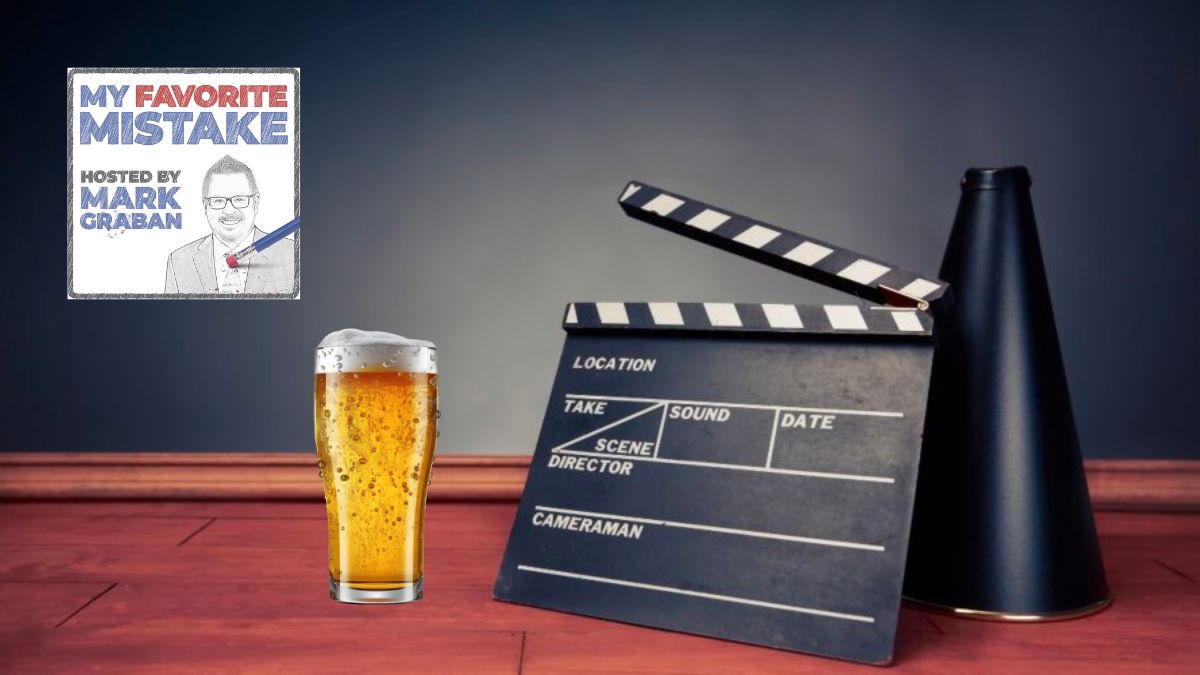What Worked Before Won’t Necessarily Work Now — Avoiding This Mistake
How can embracing mistakes propel you towards success? This intriguing question lies at the heart of our latest post, where we delve into the enlightening journeys of two unique entrepreneurs: creativity expert Nir Bashan and brewery visionary Kelly Meyer.
Their stories, laden with failures, reinvention, and hard-earned wisdom, offer more than just cautionary tales. They provide a roadmap to turning setbacks into stepping stones towards innovation and success. Join us as we unravel the transformative power of mistakes through the experiences of these dynamic business leaders.
Prepare to be inspired, as we explore how embracing our missteps can lead us to unexpected victories.
The following material and stories were cut from the book, The Mistakes That Make Us: Cultivating a Culture of Learning and Innovation.
Embracing Change and Innovation: Nir Bashan’s Journey from Failure to Creative Leadership
Creativity expert Nir Bashan is the founder and CEO of The Creator Mindset, and he’s written a book of that title. His clients have included AT&T, Microsoft, Ace Hardware, NFL Network, and JetBlue. Even with his success, Nir believes “it is incredibly important to start talking about the things that didn’t go well for me.”
As a serial entrepreneur, Nir had a movie production company that produced a cooking documentary, “The Kitchen,” that he sold to Universal Studios. His mistake was assuming “everything will continue on like this forever.”
They didn’t produce another successful film. They didn’t create additional products or services based on that first hit film, and Nir admits he didn’t listen to his employees’ ideas. Nir realizes he thought he knew more than everybody else. Instead of moving forward with those ideas, he focused on wringing more profits out of the film instead of investing in related ideas that would have brought in more revenue.
“It worked for a while, and then it tanked.” It was like “several mistakes came together to make one big mistake.”
The production company went out of business. Nir let everybody go.
“You want to just crawl into a hole somewhere and die after you make these types of mistakes.”
To his credit, Nir learned from his mistakes that “if you’re not continually innovating, continually creating — and changing and adapting and introducing new things — and testing, and then seeing if things work or not and adjusting, then you’re forever relegated into the dustbin of history.”
Nir now works to help companies avoid repeating his mistake, as “the difference between a great business and an average business is how adaptable and receptive you are to change.”
“Being a serial entrepreneur and having lots of businesses, I think it’s good to have the things come up because that’s how you learn.”
Nir tries to help people view mistakes in a positive way, when “most people view [mistakes] with negativity. He has worked hard to shift his own “gut instinct” about mistakes away from getting “upset or hurt or sad” — because the negativity hampers our ability to improve.
When you can, instead, say, “this happened for a reason, then you open up the potential of possibility,” which allows you to solve problems creatively.
“If you make a mistake and you look at the mistake in a positive way, it will open up. I promise you avenues of solutions that were never there before.”
The Brewing Blunders: Kelly Meyer’s Candid Lessons from ‘How Not to Start a Damn Brewery’
Kelly Meyer is the author of the book How Not to Start a Damn Brewery. The book is based on his experience — and his mistakes. His “one big seminal mistake” was “literally just opening a brewery the wrong time.” Because of the proliferation of Texas craft breweries, Kelly thinks the timing would have been much better five years earlier.
His second mistake was not avoiding the ten mistakes that he shares in the ten chapters of the book, mistakes he thinks are “pretty universal.”
Kelly started his brewery as a “fun semi-retirement thing” in 2011 after selling his successful company of eight fitness centers, selling at the top of the market. The millions he made led to “arrogance” and his belief that a brewery” just couldn’t be that hard, especially looking “at all the idiots in the industry.” Kelly also admits that he didn’t approach this as responsibly (he invested over $750,000 without having a business plan) or as maturely as he could (case in point, the “idiots” comment).
One mistake was brewing a range of German-style beers in a market that was crowded with that style, and consumers already had their favorites. He adjusted by going “niche” to produce esoteric beers that required a lot of consumer education about these “higher price, more artistic” products. He learned that the best beer wouldn’t automatically win in the marketplace because marketing and distribution matters greatly.
His wife quit in 2019, and Kelly started writing the book and then hit record sales during the Covid shutdown. But none of the “little runs were sustainable.” Kelly shut down the brewery in the spring of 2021.
“Pain is weakness leaving the body… if it doesn’t kill you, it makes you stronger. When I wrote that book, one of the things that I realized was that I wasn’t still making these mistakes. So, clearly, the business was stronger in 2021 than it was in 2011. It just still wasn’t strong enough.”
“So learn from my mistakes,” Kelly says, and he has started his own podcast where he interviews and learns from owners of other failed breweries,
Would he ever be tempted to repeat this mistake of starting a brewery? No. “I would be a single man if I did, and I love my wife tremendously.”
“It is possible to commit no mistakes and still lose. That is not weakness, that is life.” – Captain Jean-Luc Picard, U.S.S. Enterprise
In conclusion, the entrepreneurial odysseys of Nir Bashan and Kelly Meyer underscore a fundamental truth: embracing and learning from mistakes is not just about avoiding failure, but it’s about evolving into more creative, adaptable, and resilient leaders.
Bashan’s shift from a narrow focus on short-term success to a broader perspective on continual innovation, and Meyer’s transition from a brewery owner to an insightful author and podcast host, both illustrate how perceived failures can be transformed into invaluable lessons.
Their stories are powerful reminders that success is not a linear path but a mosaic of experiences, including those that initially seem like setbacks. By sharing their stories, they provide a blueprint for turning blunders into breakthroughs, demonstrating that sometimes, the most significant growth comes from the lessons learned in the face of adversity.
This perspective, echoed by the philosophies in “The Mistakes That Make Us: Cultivating a Culture of Learning and Innovation,” champions a culture where mistakes are not merely tolerated but are essential components of the journey toward personal and professional excellence.



